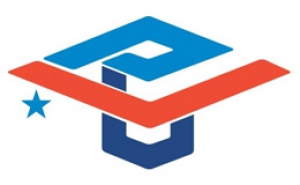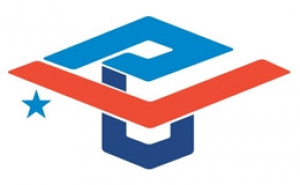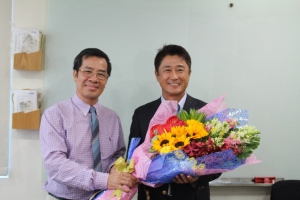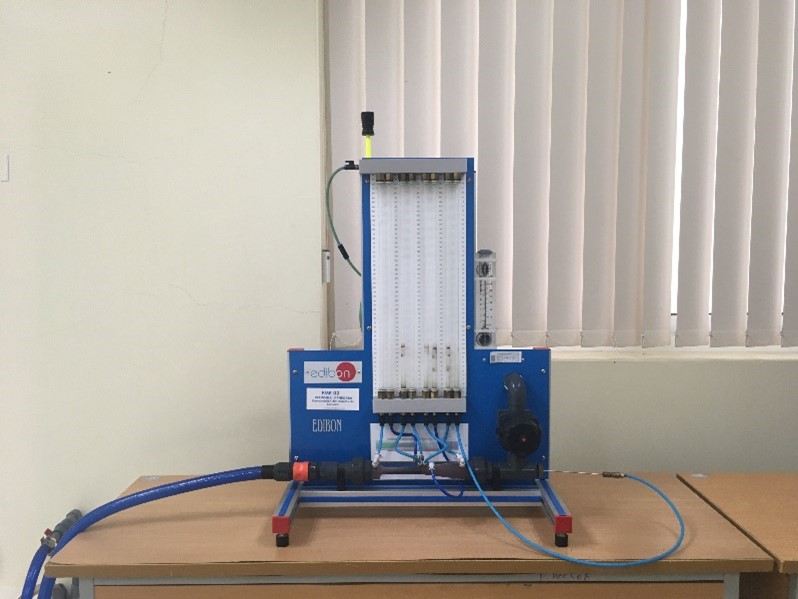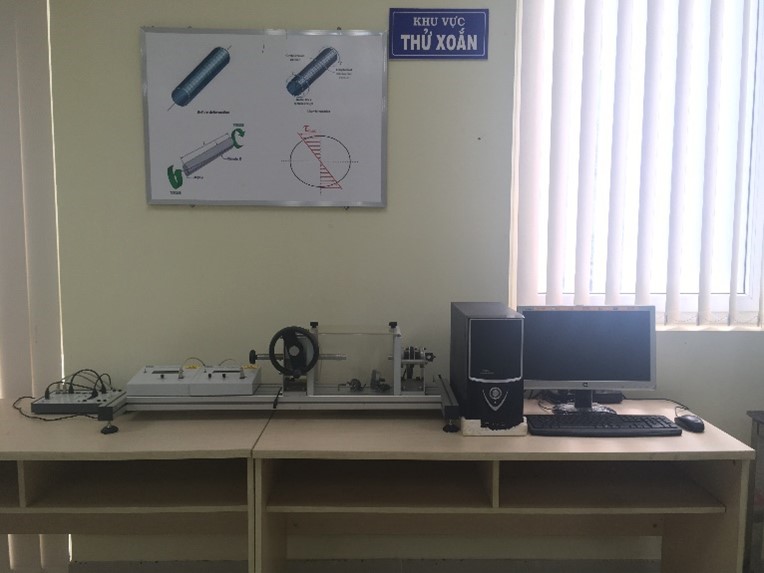Super User
Trường Đại học Dầu khí Việt Nam (PVU)
thông báo tuyển sinh đào tạo trình độ Thạc sĩ như sau:
1. Chỉ tiêu: 15 chỉ tiêu/Ngành:
- Ngành Công trình biển.
- Ngành Kỹ thuật Địa chất (Địa chất – Địa vật lý dầu khí).
- Ngành Kỹ thuật Dầu khí (Khoan – Khai thác dầu khí).
- Ngành Kỹ thuật Hóa học (Lọc – hóa dầu).
- Các lớp liên kết đào tạo của các chuyên ngành trên theo hình thức 1 năm tại PVU, 1 năm tại Mỹ. Bằng do Đại học Mỹ cấp (thông báo cụ thể trên trang thông tin của Trường).
2. Thời gian đào tạo: 2 năm.
3. Điều kiện dự tuyển chung:
3.1 Về văn bằng: Có bằng tốt nghiệp đại học các ngành khoa học, kỹ thuật.
3.2 Thâm niên công tác: Người có bằng tốt nghiệp đại học loại khá trở lên thuộc ngành đúng hoặc phù hợp với ngành, chuyên ngành đăng kí dự thi được dự thi ngay sau khi tốt nghiệp. Những đối tượng còn lại phải có ít nhất 01 năm kinh nghiệm làm việc trong lĩnh vực chuyên môn phù hợp với Ngành, Chuyên ngành đăng ký dự thi, kể từ ngày có quyết định công nhận tốt nghiệp đại học đến ngày nộp hồ sơ dự thi.
4. Điều kiện cho từng Ngành/Chuyên ngành tốt nghiệp:
4.1 Đối tượng dự thi ngành Công trình biển phải tốt nghiệp một trong các ngành sau:
Kỹ thuật xây dựng Công trình biển, Kỹ thuật Xây dựng, Kỹ thuật địa chất, Kỹ thuật Dầu khí, Kỹ thuật Hàng hải, Kỹ thuật Tàu thủy, Kỹ thuật Cơ khí, Kỹ thuật Điện-Điện tử, Tự động hóa hoặc tốt nghiệp đại học các chuyên ngành liên quan đến Công trình biển – Dầu khí.
* Học phần bổ sung kiến thức:
- Học viên tốt nghiệp các ngành Kỹ thuật Hàng hải, Kỹ thuật Địa chất, Kỹ thuật Dầu khí, Tự động hóa: học bổ sung học phần Cơ học kết cấu.
- Học viên tốt nghiệp các ngành Kỹ thuật Điện tử: học bổ sung học phần Cơ học chất lỏng.
- Tốt nghiệp các ngành khác: xem xét học phần bổ sung dựa vào ngành học và bảng điểm đại học.
4.2 Đối tượng dự thi ngành Kỹ thuật Địa chất (Chuyên ngành Địa chất – Địa vật lý dầu khí) phải tốt nghiệp một trong các ngành sau:
* Ngành đúng: Người có bằng tốt nghiệp đại học trong và ngoài nước các ngành Kỹ thuật Địa chất (Địa chất dầu khí- Địa vật lý dầu khí), hoặc các CTĐT có số học phần/tín chỉ khối kiến thức cơ sở ngành và chuyên ngành không khác quá 10% so với CTĐT ngành Kỹ thuật Địa chất của PVU;
* Ngành gần:
- Người có bằng tốt nghiệp đại học trong và ngoài nước các ngành Kỹ thuật dầu khí (Công nghệ mỏ dầu khí, Công nghệ khoan dầu khí, Công nghệ khai thác dầu khí…), Kỹ thuật địa vật lý và trắc địa, hoặc các CTĐT có số học phần/tín chỉ khối kiến thức cơ sở ngành và chuyên ngành không khác quá 40% so với CTĐT ngành Kỹ thuật Địa chất của PVU, với các học phần bổ sung: Địa chất Dầu khí, Các phương pháp tìm kiếm thăm dò Dầu khí.
- Người có bằng tốt nghiệp đại học trong và ngoài nước nhóm ngành khoa học, kỹ thuật nói chung hoặc những người hoạt động chuyên môn cùng lĩnh vực có kinh nghiệm từ 5 năm trở lên, với các học phần bổ sung như sau: Địa chất cơ sở, Địa chất Dầu khí, Các phương pháp tìm kiếm thăm dò Dầu khí, Cơ sở kỹ thuật Dầu khí.
4.3 Đối tượng dự thi ngành Kỹ thuật dầu khí (Chuyên ngành Khoan – Khai thác mỏ Dầu khí) phải tốt nghiệp một trong các ngành sau:
* Ngành đúng: Người có bằng tốt nghiệp đại học trong và ngoài nước các ngành Kỹ thuật Dầu khí (Công nghệ mỏ dầu khí, Công nghệ khoan dầu khí, Công nghệ khai thác dầu khí), hoặc các CTĐT có số học phần/tín chỉ khối kiến thức cơ sở ngành và chuyên ngành không khác quá 10% so với CTĐT ngành Kỹ thuật dầu khí của PVU;
* Ngành gần:
- Người có bằng tốt nghiệp đại học trong và ngoài nước các ngành Kỹ thuật Địa chất (Địa chất dầu khí- Địa vật lý dầu khí), Kỹ thuật mỏ, hoặc các CTĐT có số học phần/tín chỉ khối kiến thức cơ sở ngành và chuyên ngành không khác quá 40% so với CTĐT ngành Kỹ thuật dầu khí của PVU, các học phần bổ sung như sau: Công nghệ khoan và khai thác Dầu khí, Công nghệ Mỏ.
- Người có bằng tốt nghiệp đại học trong và ngoài nước nhóm ngành kỹ thuật, hoặc những người hoạt động chuyên môn cùng lĩnh vực có kinh nghiệm từ 5 năm trở lên, các học phần bổ sung như sau: Công nghệ khoan và khai thác Dầu khí, Công nghệ Mỏ, Cơ sở kỹ thuật Dầu khí, Các phương pháp tìm kiếm thăm dò.
4.4 Đối tượng dự thi ngành Kỹ thuật Hóa học (Chuyên ngành Lọc – Hóa dầu) phải tốt nghiệp một trong các ngành sau:
* Ngành đúng: Người có bằng tốt nghiệp đại học trong và ngoài nước các ngành Kỹ thuật Hóa học hoặc các CTĐT có số học phần/tín chỉ khối kiến thức cơ sở ngành và chuyên ngành không khác quá 10% so với CTĐT ngành Kỹ thuật Hóa học của PVU;
* Ngành gần:
- Người có bằng tốt nghiệp đại học trong và ngoài nước các ngành Kỹ thuật Vật liệu, luyện kim và môi trường, hoặc các CTĐT có số học phần/tín chỉ khối kiến thức cơ sở ngành và chuyên ngành không khác quá 40% so với CTĐT ngành Kỹ thuật hóa học của PVU, các học phần bổ sung như sau: Công nghệ chế biến dầu và khí, Quá trình thiết bị.
- Người có bằng tốt nghiệp đại học trong và ngoài nước nhóm ngành kỹ thuật, hoặc những người hoạt động chuyên môn cùng lĩnh vực có kinh nghiệm từ 5 năm trở lên, các học phần bổ sung như sau: Hóa học cơ sở, Công nghệ chế biến dầu và khí, Quá trình thiết bị.
5. Môn thi:
5.1. Ngành Công trình biển: Tiếng Anh, Toán cao cấp, Cơ học chất lỏng.
5.2. Ngành Kỹ thuật Địa chất: Tiếng Anh, Toán cao cấp, Cơ sở địa chất - Địa vật lý Dầu khí.
5.3. Ngành Kỹ thuật Dầu khí: Tiếng Anh, Toán cao cấp, Cơ sở kỹ thuật Dầu khí.
5.4. Kỹ thuật Hóa học: Tiếng Anh, Toán cao cấp, Hóa lý.
6. Hồ sơ đăng ký:
Đăng ký theo mẫu của PVU theo các hình thức sau: Đăng ký online (trên website www.pvu.edu.vn), nộp trực tiếp hoặc qua đường bưu điện.
7. Mốc thời gian:
- Thời gian thi tuyển (dự kiến): Tháng 08/2019.
- Thí sinh có nhu cầu dự thi xin liên hệ ngay với địa chỉ bên dưới để nhận lịch ôn tập và thi tuyển.
8. Học phí, lệ phí:
- Học phí: 1.000.000đ/Tín chỉ. Học phí đóng theo kỳ và không bao gồm: chi phí bảo vệ tốt nghiệp, chi phí bế giảng khóa học và học phí học chuyển đổi (nếu có).
- Lệ phí ôn thi: 1.800.000đ/môn. (Kinh phí được tổ chức với nguyên tắc đảm bảo thu bù chi).
- Lệ phí thi tuyển: 1.450.000đ.
- Lệ phí hồ sơ: 200.000đ/hồ sơ.
* Nhóm Tư vấn tuyển sinh 2018: https://www.facebook.com/groups/171543613387754/
* THÔNG TIN CHI TIẾT LIÊN HỆ
Phòng Đào tạo, Trường Đại học Dầu khí Việt Nam, Số 762 Cách Mạng Tháng Tám, Phường Long Toàn, Thành phố Bà Rịa, Tỉnh Bà Rịa-Vũng Tàu
ĐT: (0254) 3738879 (số máy lẻ: 290, Thầy Tùng; 128, Cô Lan)
DĐ: 0945750202 – Thầy Phong; 0947449068 – Thầy An; 0933678365 – Thầy Tùng; 0983197934 – Cô Lan.
Fax: (0254) 3733579.
Website: www.pvu.edu.vn
Email: This email address is being protected from spambots. You need JavaScript enabled to view it.
Fanpage : www.facebook.com/PVU.PVN/
Trường Đại học Dầu khí Việt Nam (PVU)
thông báo tuyển sinh trình độ đại học văn bằng 2 chính quy và hệ vừa làm vừa học như sau:
1. Chỉ tiêu: 15 chỉ tiêu/Ngành:
- Ngành Kỹ thuật Địa chất (Địa chất – Địa vật lý dầu khí).
- Ngành Kỹ thuật Dầu khí (Khoan – Khai thác dầu khí).
- Ngành Kỹ thuật Hóa học (Lọc – Hóa dầu).
2. Thời gian đào tạo: 2 năm.
3. Điều kiện dự tuyển:
- Đối với văn bằng 2 chính quy: Người học đã có bằng tốt nghiệp đại học chính quy khác Ngành do các cơ sở đào tạo trong và ngoài nước cấp. Người có văn bằng tốt nghiệp tại các cơ sở đào tạo nước ngoài cấp phải được công nhận theo quy định của Bộ Giáo dục & Đào tạo.
- Đối với văn bằng 2 hệ vừa làm vừa học: Người học đã có bằng tốt nghiệp đại học khác Ngành do các cơ sở đào tạo trong nước cấp.
4. Miễn thi và hình thức thi:
a) Miễn thi:
- Đối với văn bằng 2 hệ chính quy: Người có bằng tốt nghiệp đại học do PVU cấp.
- Đối với văn bằng 2 hệ vừa làm vừa học: Người học đã có bằng tốt nghiệp đại học khác Ngành do các cơ sở đào tạo trong nước cấp.
b) Hình thức thi: Những người không thuộc diện miễn thi sẽ dự thi 2 môn là Tiếng Anh và Toán Cao cấp.
5. Hồ sơ đăng ký: Đăng ký theo mẫu của PVU theo các hình thức sau: Đăng ký online (trên website www.pvu.edu.vn), nộp trực tiếp hoặc qua đường bưu điện.
6. Mốc thời gian:
- Thời gian thi tuyển: Tháng 08/2019.
- Thí sinh có nhu cầu dự thi xin liên hệ ngay với địa chỉ bên dưới để nhận lịch ôn tập và thi tuyển.
7. Học phí, lệ phí:
- Học phí đóng theo học kỳ và phụ thuộc vào số Tín chỉ của Chương trình đào tạo:
+ Ngành Kỹ thuật Địa chất (Địa chất – Địa vật lý dầu khí): 500.000đ/Tín chỉ.
+ Ngành Kỹ thuật Dầu khí (Khoan – Khai thác dầu khí): 479.000đ/Tín chỉ.
+ Ngành Kỹ thuật Hóa học (Lọc – hóa dầu): 489.000đ/Tín chỉ.
- Lệ phí ôn thi: 1.800.000 đồng/môn (Kinh phí được tổ chức với nguyên tắc đảm bảo thu bù chi).
- Lệ phí thi tuyển: 1.300.000 đồng.
- Lệ phí hồ sơ: 200.000 đồng/hồ sơ.
* Thời gian và địa điểm: Học vào các ngày cuối tuần và linh hoạt theo nhu cầu học viên.
* Nhóm Tư vấn tuyển sinh 2018: facebook
* THÔNG TIN CHI TIẾT LIÊN HỆ
Phòng Đào tạo, Trường Đại học Dầu khí Việt Nam, Số 762 Cách Mạng Tháng Tám, Phường Long Toàn, Thành phố Bà Rịa, Tỉnh Bà Rịa-Vũng Tàu.
ĐT: (0254) 3738879 (số máy lẻ: 128, Cô Lan).
DĐ: 0945750202-Thầy Phong; 0947449068-Thầy An; 0983197934-Cô Lan.
Fax: (0254) 3733579.
Website: www.pvu.edu.vn
Email: This email address is being protected from spambots. You need JavaScript enabled to view it.
Fanpage : www.facebook.com/PVU.PVN/
The lasting friendship between PVU and JX NOEX
In the morning of 06/4/2018, Vice-Rector Hoang Hung and Deputy Manager of External Relations and Science-Technology Department – Mr. Nguyen To Hoai visited and sent warm farewell messages to the former CEO of JX Mekong and congratulated the new leader of it.
The meeting was in a warm, intimate, and meaningful atmosphere. On behalf of PVU, Mr. Hoang Hung presented flowers and farewell gifts and congratulated JX Mekong CEO - Mr. Kazuchika Fujii, JVPC Director - Mr. Yoshihide Kira on their new positions at JX NOEX Japan.
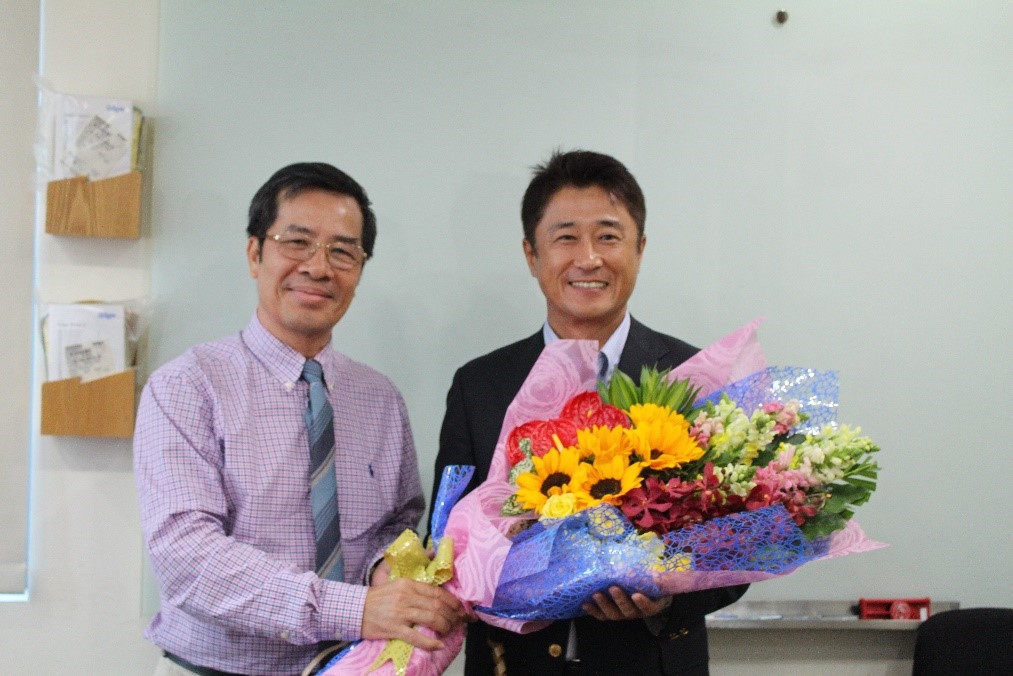
Mr. Hoang Hung gave flowers and present to Mr. Kazuchika Fujii - Former General Director of JXMK
Vice-Rector Hoang Hung expressed his deep thanks to Mr. Kira and Mr. Fujii for their facilitation and support to PVU and especially their profound concern about the development activities of students. At the same time, he wished them more health and success in their new positions, and hopefully they would continue to support and help PVU. On this occasion, Mr. Hoang Hung also congratulated Mr. Tsuyoshi Tojo - new CEO of JX Mekong in Vietnam and hope that he would maintain the good relationship between JX NOEX and PVU which has been built for a long time. Mr. Tojo pledged to foster the friendly and long-standing relationship between two sides. At the meeting, Vice-Rector Hoang Hung invited JX Mekong to attend the "Company Day" event organized by PVU in May 2018. The meeting ended with a warm handshake and good wishes for both parties.
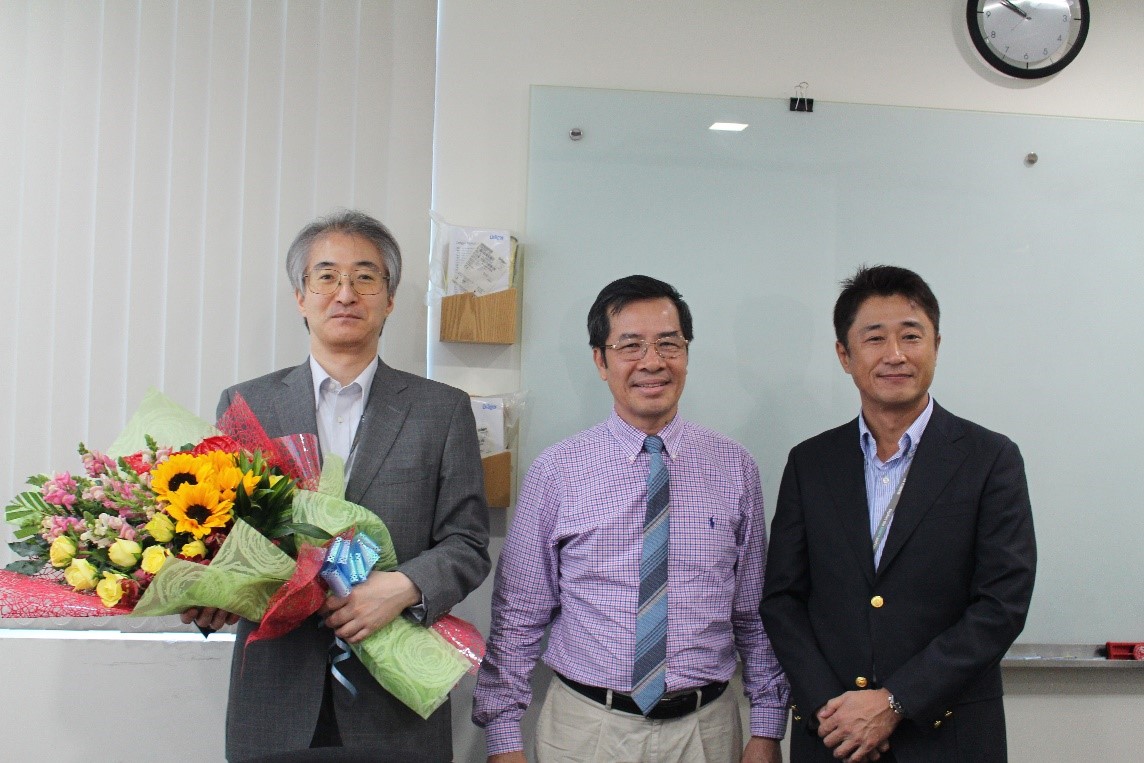
Congratulation to the new CEO of JXMK - Mr. Tsuyoshi Tojo
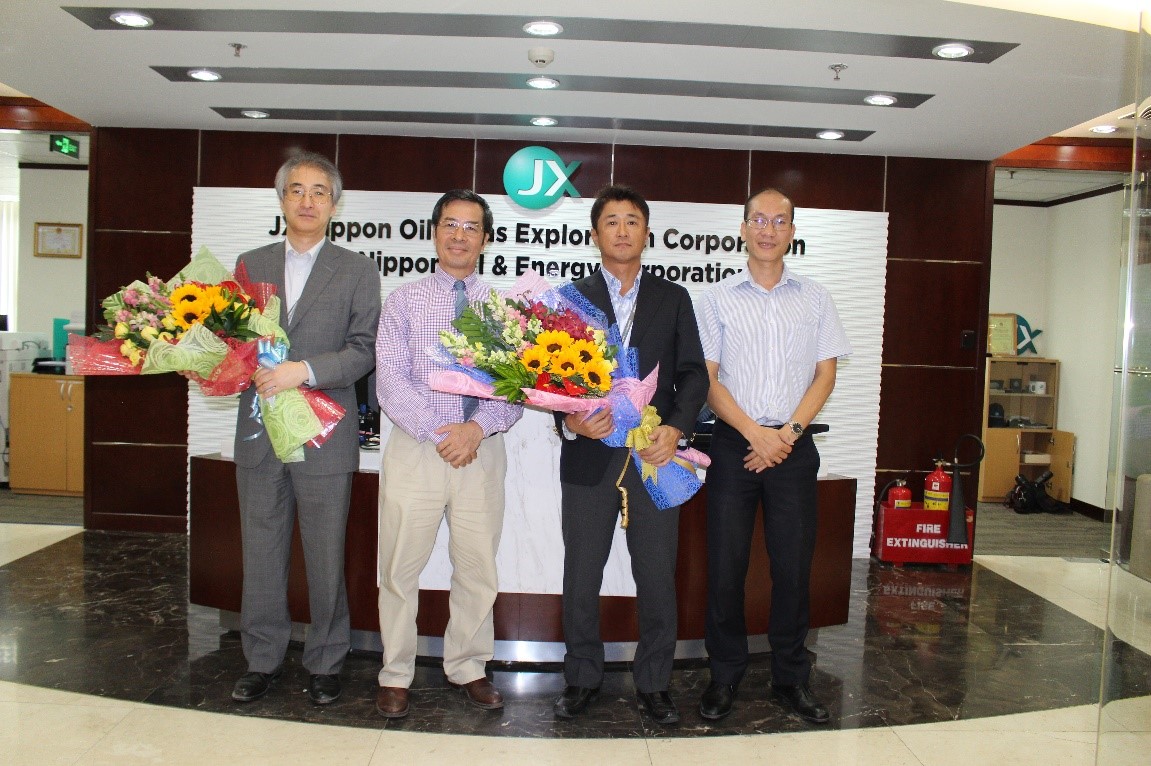
PVU took a photo with leaders of JXMK at HCMC- based company
NOEX is the most major and potential sponsor of PVU so far with sponsorship activities:
- Sponsor midstream and downstream training for teaching staff and students PVU: 2,101,100,000 VND (2011).
- Funding for PVU Student Development Fund: 65,520,000 VND (in 2012); VND 84,420,000 (in 2013); VND 63,585,000 (2014); VND 67,170,000 (2015); VND 66,810,000 (2016) and VND 68,010,000 (2017).
| Chemical Engineering Program | Formal Name | Courses | Layouts | Max Capacity | Assignable Area (Sq. m.) | |
| Mechanics of Fluid Lab | Mechanics of Fluid Lab | Lab | 18 | 50 | ||
|
Entrance |
Computer controlled fluid friction in pipes unit |
|||||
|
Bernoulli’s theorem demonstration unit |
Osborne- Reynolds demonstration unit |
|||||
| Petroleum Engineering Program | Formal Name | Courses | Layouts | Max Capacity | Assignable Area (Sq. m.) | |
| Materials and Mechanical Lab | Strength of Materials | Lab | 8 | 60 | ||
|
Entrance |
Lab layout |
|||||
|
Document Cabinet |
Tinius Olsen’s hydraulic Universal Testing Machine Model 300SL |
|||||
|
Tinius Olsen's pendulum impact tester |
Torsion Testing Machine |
|||||
|
The Helios 350-V projector |
The OBLF Analyzer |
|||||
| Petroleum/Chemical Engineering Program | Formal Name | Courses | Layouts | Max Capacity | Assignable Area (Sq. m.) | |
| Electricity -Electronics Lab | Electricity -Electronics; Electrical Circuit Analysis | Lab | 24 | 60 | ||
|
Entrance |
Lab layout |
|||||
|
Power Supply, Data Acquisition Interface; Three phase circuit; 1-3 phase Transformers |
AC Motor/Generator, DC Motor/Generator, R-L-C Loads |
|||||
|
Power Supply, Three phase circuit; Data Acquisition Interface; R-L-C Loads |
Electronic Devices, Osiloscop, Function Generators |
|||||
| PE/CE/GE Program | Formal Name | Courses | Layouts | Max Capacity | Assignable Area (Sq. m.) | |
| General Physics Lab |
General Physics Lab 1 |
Lab | 40 | 140 | ||
|
Entrance |
Lab layout |
|||||
|
Measurement of length |
Measurement of volume and density |
|||||
|
Inertia moment of rigid bodies |
Hooke’s law |
|||||
|
Simulated experiment of viscosity |
Simulated experiment of ideal gases |
|||||
|
Simulated experiment of Bernoulli’s equation |
Transformer |
|||||
|
Magnetic field outside straight conductors |
Specific charge of the electron e/m |
|||||
|
RLC measuring bridge |
Newton’s ring |
|||||
|
Interference by Fresnel’s mirror and biprism |
Polarization of light |
|||||
| Fundamental Chemistry Laboratory | |
| Instructor | Nguyen Van Kiet, Msc |
| List of experiments |
- Determination of molar mass using the ideal gas law - Determination of the enthalpy of combustion with a calorimetric bomb - Vapour pressure of mixtures of ideal fluids - Adsorption isotherms - Determining surface tension using the ring method (Du Nouy method) - Distribution equilibrium - Potentiometric titration - Kinetics of saccharose inversion - Conductivity of strong and weak electrolytes - The Nernst equation - Fractional distillation with the bubble tray column - Boiling point diagram of a binary mixture |
| Description about the lab |
General chemistry laboratory was established and have been operated by Faculty of Fundamental Sciences, PetroVietNam University (PVU). Right after the establishment PVU, the lab was built and invested two sets of experiments imported from PHYWE Group (Germany) with 2.5 billion VND fund. With modern equipment and facilities, the Fundamental Chemistry Laboratory basically meets the standard of a chemistry laboratory in accordance with the rules of Vietnam Ministry of Education and Training Vietnam. |
| Images of lectures |
Lec_Kinetics of saccharose inversion
Lec_Vapour pressure of mixtures of ideal fluids
Lec_Determination of the enthalpy of combustion with a calorimetric bomb
Lec_ Fractional distillation with the bubble tray column |
This section is under construction.
General information
Currently, PVU hold 3 undergraduate programs as:
- Geological Engineering / Petroleum Geophysics
- Petroleum Engineering / Petroleum Drilling and Production
- Chemical Engineering / Refining and Petrochemicals
1. Module details have been designed according to some following main academic orientations:
- Undergraduate studies are regulated by the Ministry of Education and Training. Fundamental and specialized subjects are designed not only to meet the quality requirement of high-ranking American universities but also to fit well in the Vietnamese scenario and the continuity and modernity principles as well.
- Offer career-oriented training programs which first serve the demands of PVN.
- Guarantee continuity of PVU undergraduate programs with other national and international training programs.
2. The number of credits is fixed as regulated in curriculum training issued by the Ministry of Education and Training:
The length of undergraduate program is four years on average, with 20-30% of the duration being spent on laboratory practices and apprentices. The total of credit is more than 150 credits.
3. The language used in teaching and learning is both Vietnamese and English:
Political social subjects, courses on soft skills, natural sciences, fundamental technology, physical training and Military educationare delivered in Vietnamese whereas fundamental and specialized courses are in English.
PVU determines to offer 16 credits of English subjects aiming to equip students with adequate language skills so that they are capable of listening to lectures in English and get IELTS band 5.5 or its equivalent prior to their graduation. All credits of English subjects are delivered within the first two and a half years, together with fundamental subjects.
Four-year training programs are adapted from the counterpart in American universities. They combine professional training with research and practice production in PVN operating units. Such programs which are accredited by ABET extending over 08 main terms and summer terms with the total of more than 150 credits.
4. Continuing professional development courses:
- PVU offers regular short-term continuing professional development courses, namely Induction to Petroleum Geophysics, Petroleum Drilling and Production, and Refining and Petrochemicals.
- Specialized short-term courses are delivered as seminars including Petroleum Geophysics, Petroleum Drilling and Production, and Refining and Petrochemicals.
- Petroleum Geophysics, Petroleum Drilling and Production, Refining and Petrochemicals.
5. Types of Degrees/certificates:
Students who complete four-year undergraduate course are awarded university degrees (Engineer) as regulated by the Ministry of Education and Training.
Those attend continuing professional development courses are awarded certificates verified by PVU.
6. Major education programs and student outcomes:
Module details of 3 major training programs include: Petroleum Geophysics, Drilling and Production, and Refining and Petrochemicals.
Geology Engineering - Petroleum Geophysics
The purpose of Geological Engineering (GE) Program is to produce highly qualified geological engineers with expertise in Petroleum Geophysics.
It is expected that within a few years of graduation Geological Engineering graduates will:
- Be practical, employable and qualified geological engineers in professional careers as practicing petroleum geophysicists engaged in exploration and development activities associated with the production of oil and gas reserves;
- Continue their professional development and become professional managers for enterprises of Vietnam Oil and Gas Group, multinational companies, and/or become scientists for research institutes and universities;
- Keep their education up to date through self-instruction and other training to meet the challenges of the competitive, modern and dynamic workplace.
The student outcomes of our Geological Engineering Program are the same as those required by ABET for any engineering program to receive accreditation. The Geological Engineering graduates will have:
- an ability to identify, formulate, and solve complex engineering problems by applying principles of engineering, science, and mathematics.
- an ability to apply engineering design to produce solutions that meet specified needs with consideration of public health, safety, and welfare, as well as global, cultural, social, environmental, and economic factors.
- an ability to communicate effectively with a range of audiences.
- an ability to recognize ethical and professional responsibilities in engineering situations and make informed judgments, which must consider the impact of engineering solutions in global, economic, environmental, and societal contexts.
- an ability to function effectively on a team whose members together provide leadership, create a collaborative and inclusive environment, establish goals, plan tasks, and meet objectives.
- an ability to develop and conduct appropriate experimentation, analyze and interpret data, and use engineering judgment to draw conclusions.
- an ability to acquire and apply new knowledge as needed, using appropriate learning strategies.
Petroleum Engineering - Drilling and Production
The PE Program prepares students with knowledge and skills so that they can go to work immediately after graduation or continue their higher academic qualifications. We expect our graduates, after a certain time (from 3 to 5 years), can achieve the program educational objectives as follows. Graduates of the Petroleum
Engineering program will:
- Be practical, employable and qualified production engineers, who are capable of designing, executing, producing, researching, innovation and management in specialized field.
- Continue their professional development and become professional managers for enterprises of Vietnam Oil and Gas Group, multinational companies, and/or become scientists for research institutes and universities.
- Keep their education up to date through self-instruction and other training to meet the challenges of the competitive, modern and dynamic workplace.
The student outcomes of our Petroleum Engineering Program are the same as those required by ABET for any engineering program to receive accreditation. The Petroleum Engineering graduates will have:
- an ability to identify, formulate, and solve complex engineering problems by applying principles of engineering, science, and mathematics.
- an ability to apply engineering design to produce solutions that meet specified needs with consideration of public health, safety, and welfare, as well as global, cultural, social, environmental, and economic factors.
- an ability to communicate effectively with a range of audiences.
- an ability to recognize ethical and professional responsibilities in engineering situations and make informed judgments, which must consider the impact of engineering solutions in global, economic, environmental, and societal contexts.
- an ability to function effectively on a team whose members together provide leadership, create a collaborative and inclusive environment, establish goals, plan tasks, and meet objectives.
- an ability to develop and conduct appropriate experimentation, analyze and interpret data, and use engineering judgment to draw conclusions.
- an ability to acquire and apply new knowledge as needed, using appropriate learning strategies.
Chemical Engineering - Refining and Petrochemicals
The Chemical Engineering Program prepares students with knowledge and skills so that they can go to work immediately after graduation or continue their education in graduate programs. We expect our graduates, after a certain time (from 3 to 5 years), can achieve the Program educational objectives as follows:
Graduates of the Chemical Engineering program will:
- Be practical, employable and qualified chemical engineers, who are capable of designing, operating, researching, innovation and management in downstream area of oil and gas industry,
- Continue their professional development and become professional managers for enterprises of Vietnam Oil and Gas Group, multinational companies, and/or become scientists for research institutes and universities,
- Keep their education up to date through self-instruction and other training to meet the challenges of the competitive, modern and dynamic workplace.
The student outcomes of our Chemical Engineering Program are the same as those required by ABET for any engineering program to receive accreditation. The Chemical Engineering graduates will have:
- an ability to identify, formulate, and solve complex engineering problems by applying principles of engineering, science, and mathematics;
- an ability to apply engineering design to produce solutions that meet specified needs with consideration of public health, safety, and welfare, as well as global, cultural, social, environmental, and economic factors;
- an ability to communicate effectively with a range of audiences;
- an ability to recognize ethical and professional responsibilities in engineering situations and make informed judgments, which must consider the impact of engineering solutions in global, economic, environmental, and societal contexts;
- an ability to function effectively on a team whose members together provide leadership, create a collaborative and inclusive environment, establish goals, plan tasks, and meet objectives;
- an ability to develop and conduct appropriate experimentation, analyze and interpret data, and use engineering judgment to draw conclusions;
- an ability to acquire and apply new knowledge as needed, using appropriate learning strategies.

